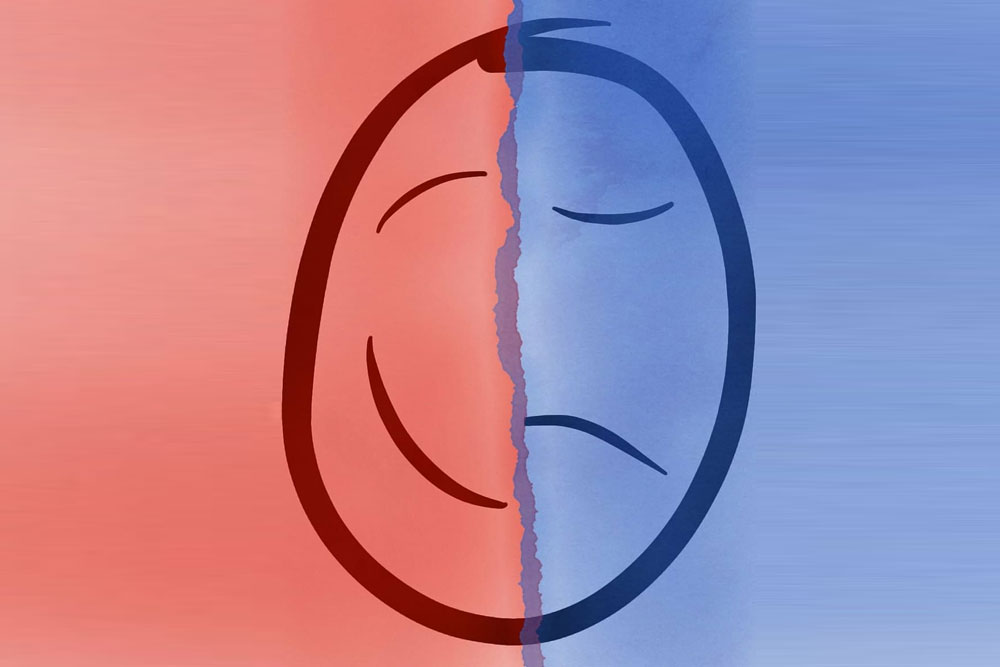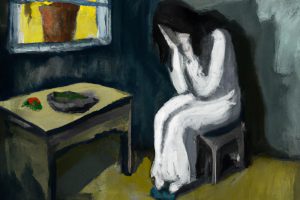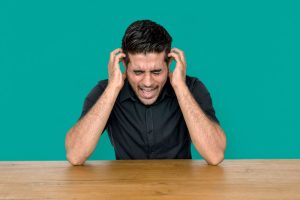How Does Bipolar Disorder Affect The Brain?
Published on July 17th, 2018
Updated on January 3rd, 2024

There are millions of people who currently suffer from bipolar disorder. Bipolar disorder is a mood disorder that causes highs and lows in mood. At one end, the mood swings can cause the patient to experience episodes of depression. This could include sadness, numbness, feeling hopeless, not interested in everyday activities. The other end is what is called Mania. Mania can cause symptoms like excessive excitement, high energy, irregular behavior and irritability.
The causes and risk factors of bipolar disorder vary from person to person. A great deal of cases of bipolar disorder stem from an imbalance in the person’s brain chemistry.
Specifically, in many cases of bipolar disorder, the brain’s neurotransmitters are not balanced.
Sponsored by

Choose a therapist to work with and start healing with 20% off from BetterHelp.
Click HereNeurotransmitters are responsible for sending messages in the brain. They are messengers that send signals between the cells in the brain. Imbalances of neurotransmitters can cause symptoms of bipolar disorder.
The 3 main neurotransmitters are:
- Serotonin. Responsible for mood regulation. Imbalances will cause an imbalanced mood. This results in depression or mania.
- Norepinephrine. Triggers the stress response in the brain and body. Norepinephrine creates a state of heightened alertness and sensitivity. Imbalances can cause someone to be on edge and have a lot of nervous or excited energy. It can also be seen in a depressed mood because of the patient’s lack of awareness for his or her surroundings.
- Dopamine. Responsible for rewarding positive behavior (eating, exercising, sex) with a “feel-good” sensation. A person in manic state will feel the effects of too much dopamine. A person who is depressed will experience the effects of not enough dopamine.
Each neurotransmitter has an important role in signaling different reactions through the brain. When they are out of balance, the patient will experience severe mood swings. They could also show some strange behaviors.
Example: A patient who is manic may be very talkative. They may also become very energetic and may not sleep for extended periods of time.
A patient who is experiencing a depressed state will show the opposite behaviors. They will not be interested in engaging with others. They may not seem motivated to work toward goals or even get out of bed. They will likely feel fatigued and sleep for extended periods of time.
Research has found certain medications can help the neurotransmitters stay in balance. Since it is a chemical imbalance, medication is needed to help regulate the brain.
Such medications include:
- Antidepressants, which balance neurotransmitter levels during depressive episodes
- Selective Serotonin Reuptake Inhibitors (SSRIs) – Balance serotonin levels in the brain
- Selective Norepinephrine Reuptake Inhibitors (SNRIs) – Balance norepinephrine levels in the brain
- Monoamine Oxidase Inhibitors (MAOIs), which balance all three neurotransmitters.
- Antipsychotics prevent severe and psychotic symptoms, like hallucinations, delusions, and paranoia, during an episode.
It can take time to find the right medication, but once it is found the patient tends to feel better. For most effective results it is important for the patient also seek counseling. With counseling, the patient will learn ways to manage symptoms of both manic and depressed episodes. It will also help the patient learn how to cope with the emotional issues and life stressors they face each day.
Sponsored by

Find an affordable therapist online with 20% off from BetterHelp.
Click Here






Leave A Reply